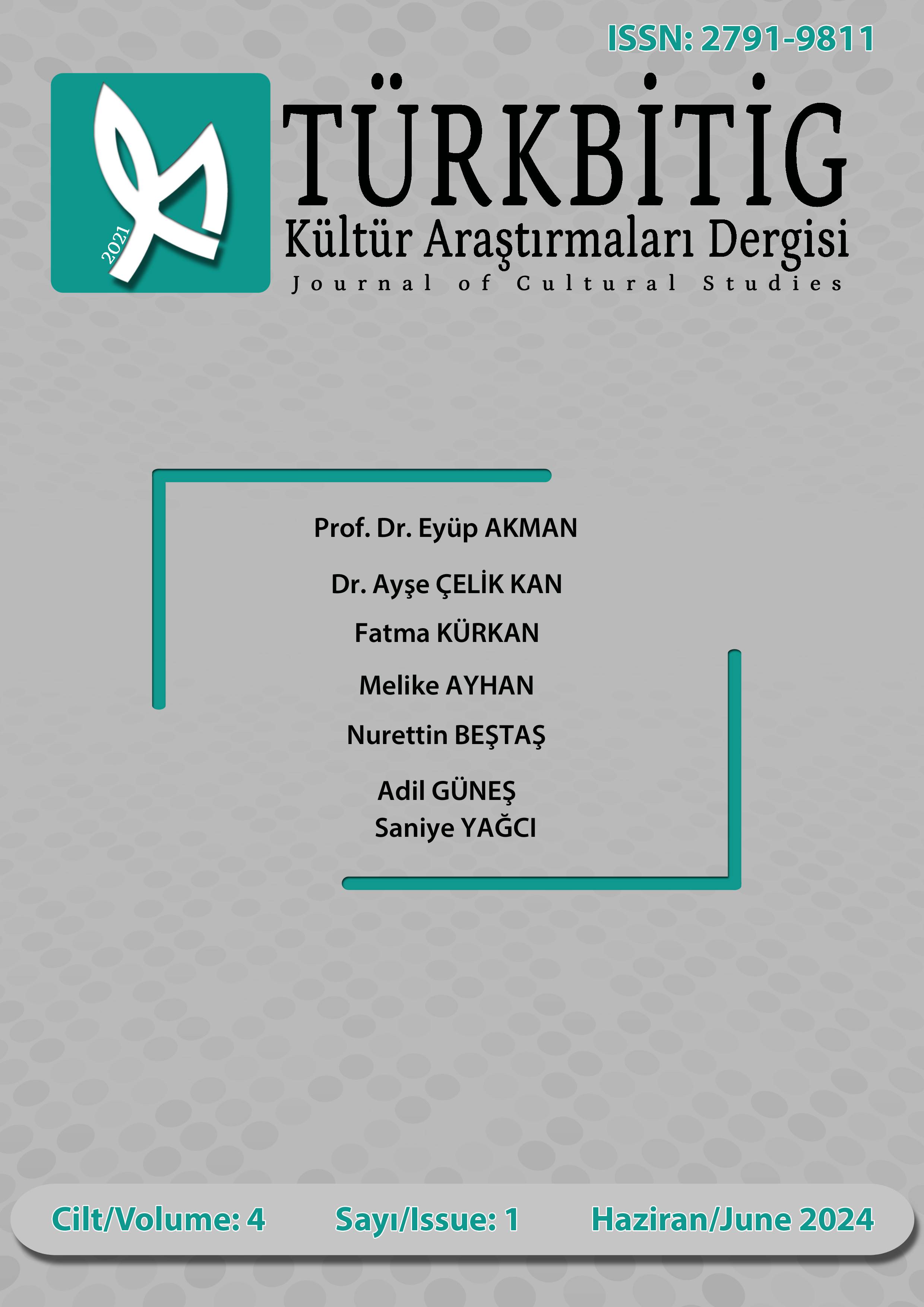Author :
Abstract
Türk kültüründe dikkati çeken bir, üç, beş, yedi, dokuz, kırk, yetmiş gibi belli başlı sayılar vardır. İslamiyet öncesi ve sonrası Türk kültüründe bu tür sayılara kutsallık atfedildiği veya farklı anlamlar yüklendiği görülmektedir. Her toplumun geçmişten günümüze tecrübelerle aktardığı inanç ve uygulamaları olduğu gibi Anadolu halkı ve Giresun Çepnilerinde de çeşitli inanma ve uygulamalar vardır. Bu minvalde incelememizin amacını Giresun’un Görele, Güce, Doğankent, Dereli, Yağlıdere, Batlama Havzası ve Bulancak ilçelerinde yaşayan Çepnilerin üç sayısına yüklediği anlamlar ve buna bağlı inanma ve ritüeller oluşturmaktadır. Yaptığımız derleme faaliyetleri ve incelemiş olduğumuz çeşitli çalışmalardan hareketle Giresun Çepnilerinin kuşaktan kuşağa aktardığı inanç ve uygulamalardaki üç sayısının genel anlamı, sayıyı hangi durumlarda, niçin kullandıkları üzerinde durulmuştur. Üç sayısının yörede efsane, masal, çocuk oyunları, halk hekimliği, halk müziği, halk takvimine bağlı belirli günlerdeki kutsama ve ritüeller içinde bulunduğu tespit edilmiş ve bu örnekleri işlevsel halkbilimi kuramı ile incelenmiştir. Üç sayısının bazen sağaltmalarda tedavinin aracı veya dinsel-büyüsel ritüelin amacına varmasındaki son adım, tedavide çareyi kutsal olanda arama, kutsal olandan yardım isteme gibi amaçlar doğrultusunda tekrarlandığı belirlenmiştir. Ayrıca ortak bir amaç etrafında birleştirme, inanmayı canlandırma, pratiğin diğer kuşaklara aktarımını sağlama, kişisel ve toplumsal baskılardan, hastalıktan kurtulma isteğinin olduğu sonuçlarına ulaşıldığı belirtilebilir.
Keywords
Abstract
In Turkish culture, certain numbers such as one, three, five, seven, nine, forty, and seventy. It is seen that such numbers were attributed sacredness or had different meanings in pre-and post-Islamic Turkish culture. Just as every society has beliefs and practices passed down through experience from the past to the present, there are also various beliefs and practices among the people of Anatolia and the Giresun Çepni people. In this regard, the purpose of our study is to examine the meanings attributed to the number three by the Çepni people living in Görele, Güce, Doğankent, Dereli, Yağlıdere, Batlama Basin, and Bulancak districts of Giresun, along with the associated beliefs and rituals. Based on our compilation activities and various studies we have examined, the general meaning of the number three in Giresun beliefs and practices from generation to generation, as well as when and why the Çepni people use this number, have been emphasized. It has been found that the number three is present in legends, tales, children's games, folk medicine, folk music, blessings on certain days according to the folk calendar, and rituals in the region, and these examples have been analyzed using functional folklore theory. It has been concluded that the number three sometimes serves as the final step in healing processes, as a means of treatment or achieving the purpose of religious-magical rituals, seeking remedy in the sacred, and seeking help from the sacred. Additionally, it has been noted that it serves an educational function by uniting people around a common goal, revitalizing belief, facilitating the transfer of practices to subsequent generations, and overcoming personal and social pressures, as well as the desire to recover from illness, are present.





